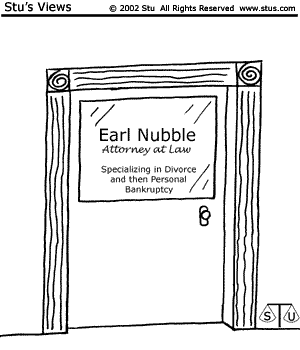Written By: Lenorae C. Atter, Attorney
Wood, Atter & Wolf, P.A.
 In Florida, unmarried fathers have to establish paternity and parental rights through the court system by filing a Petition to Establish Paternity. Florida paternity is strictly defined by Florida statute, which also states a strong presumption that a child born during a marriage is the child of the husband. The court looks at the husband as being the legal father of the child and there is no cause of action that can be brought by the biological father to fight the presumption. What this means is that if you are the biological father of a child that is born during the mother’s marriage, and you are not the husband, then you have no way of getting rights to your child.
In Florida, unmarried fathers have to establish paternity and parental rights through the court system by filing a Petition to Establish Paternity. Florida paternity is strictly defined by Florida statute, which also states a strong presumption that a child born during a marriage is the child of the husband. The court looks at the husband as being the legal father of the child and there is no cause of action that can be brought by the biological father to fight the presumption. What this means is that if you are the biological father of a child that is born during the mother’s marriage, and you are not the husband, then you have no way of getting rights to your child.
 Jacksonville Divorce Lawyer Blog
Jacksonville Divorce Lawyer Blog


 In a Florida
In a Florida 

 Florida
Florida  In a Florida divorce, marital property is often a topic of contention. In a
In a Florida divorce, marital property is often a topic of contention. In a  In Florida, divorces require the
In Florida, divorces require the  Florida alimony laws have been scrutinized over the years because we do not have an alimony calculation, but simply calculate alimony based on factors of marriage duration; contribution to the marriage; marital lifestyle; etc. In addition, the type of alimony to be awarded has not been constant and there can reasons for providing permanent alimony to a short-term marriage and short-term alimony to a long-term marriage. These factors combined with a theoretical number based on marital assets; debts; and other lifestyle contributors has made alimony payors afraid of the term alimony.
Florida alimony laws have been scrutinized over the years because we do not have an alimony calculation, but simply calculate alimony based on factors of marriage duration; contribution to the marriage; marital lifestyle; etc. In addition, the type of alimony to be awarded has not been constant and there can reasons for providing permanent alimony to a short-term marriage and short-term alimony to a long-term marriage. These factors combined with a theoretical number based on marital assets; debts; and other lifestyle contributors has made alimony payors afraid of the term alimony. Alimony in Florida can be defined as a spousal support established to help keep both parties in the same lifestyle to which they were accustomed during the marriage. Alimony has been established for individuals that are divorcing that have a lack of ability to earn income based on their contributions to the marriage. The idea is that the spouse that has put his/her career on hold will be financially harmed by the divorce due to lack of income, job experience and the like. Permanent alimony is designed to help keep the status quo the marriage for the parties.
Alimony in Florida can be defined as a spousal support established to help keep both parties in the same lifestyle to which they were accustomed during the marriage. Alimony has been established for individuals that are divorcing that have a lack of ability to earn income based on their contributions to the marriage. The idea is that the spouse that has put his/her career on hold will be financially harmed by the divorce due to lack of income, job experience and the like. Permanent alimony is designed to help keep the status quo the marriage for the parties.  In Florida, divorces involving alimony have gone through significant changes in the last couple of years. In 2010 the Florida law changed to include definitions of short-term marriages as anything less than seven years; moderate-term marriages are those that last 7 – 17 years and long-term marriages are those lasing over 17 years.
In Florida, divorces involving alimony have gone through significant changes in the last couple of years. In 2010 the Florida law changed to include definitions of short-term marriages as anything less than seven years; moderate-term marriages are those that last 7 – 17 years and long-term marriages are those lasing over 17 years.  Alimony in Florida has changed in the last couple of years. In 2011, the alimony law has been changed and will take effect on July 1, 2011 regarding all pending divorce cases and any new modifications of old divorce cases. However, the alimony changes to the law cannot be used to modify an old order.
Alimony in Florida has changed in the last couple of years. In 2011, the alimony law has been changed and will take effect on July 1, 2011 regarding all pending divorce cases and any new modifications of old divorce cases. However, the alimony changes to the law cannot be used to modify an old order.